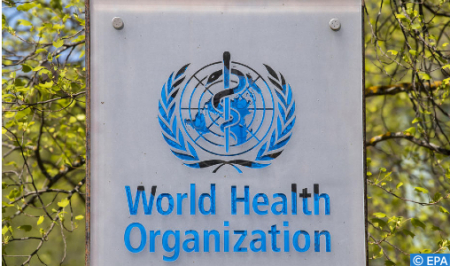COVID-19 Delta Variant Detected in 98 Countries, Continues to Evolve and Mutate: WHO
The head of the World Health Organization (WHO) on Friday urged leaders to push back against daunting new COVID surges through increased vaccination efforts and public health measures. Tedros Adhanom Gebreyesus warned that with Delta quickly becoming the dominant strain in many countries ‘we are in a very dangerous period of the pandemic’. “In those countries with low COVID-19 vaccination coverage, terrible scenes of hospitals overflowing are again becoming the norm. But no country is out of the woods yet”, he said during his biweekly press conference. Tedros explained that the Delta variant is ‘dangerous’ and continues to evolve and mutate, and this requires constant evaluation and ‘careful adjustment of the public health response’. “Delta has been detected in at least 98 countries and is spreading quickly in countries with low and high vaccination coverage”, he warned. During journalists’ questions, WHO’s technical leader for COVID-19 response, Dr. Maria Van Kerkhove, reminded that the virus has been evolving since it first emerged. “It is what viruses do. The variants of concern that we are tracking are currently four: Alpha, Beta, Gama and Delta. They will continue to evolve: there will be more mutations, there will be more variants detected, and some of those will be variants of concern”, she predicted. Dr. Van Kerkhove said there were ‘sub lineages’ of the Delta variant that experts are currently tracking and urged countries to expand their genomic sequencing efforts. Meanwhile, the WHO chief explained that there are ‘essentially’ two ways for countries to push back against the new COVID-19 surges. “Public health and social measures like strong surveillance, strategic testing, early case detection, isolation and clinical care remain critical. As well as masking, physical distance, avoiding crowded places and keeping indoor areas well ventilated”, he said. The second way, said Tedros, was through the global sharing of protective gear, oxygen, tests, treatments and vaccines. “I have urged leaders across the world to work together to ensure that by this time next year, 70% of all people in every country are vaccinated”, Tedros highlighted, adding that this was the best way to slow the pandemic, save lives, drive a truly global economic recovery and prevent further dangerous variants from getting the ‘upper hand’. WHO is calling on leaders to vaccinate at least 10% of people as soon as possible, in all countries, to ensure that health workers and those most at risk are protected. According to Tedros, ensuring this would effectively end the acute stage of the pandemic and save a significant number of lives.

